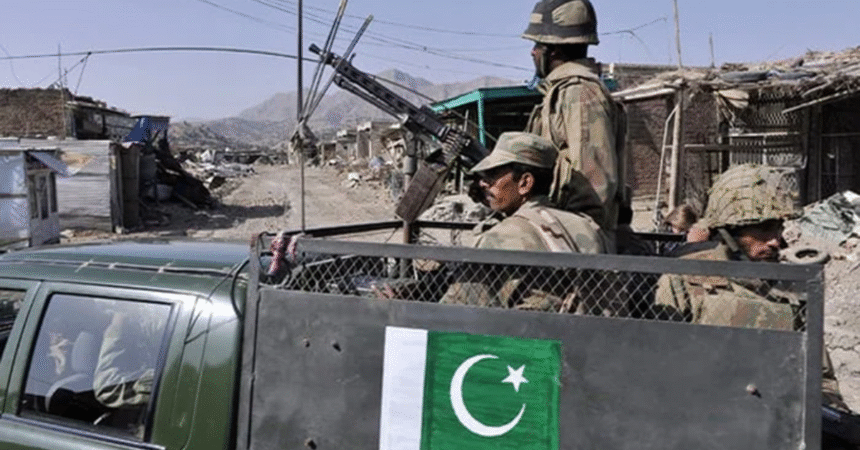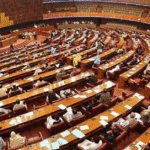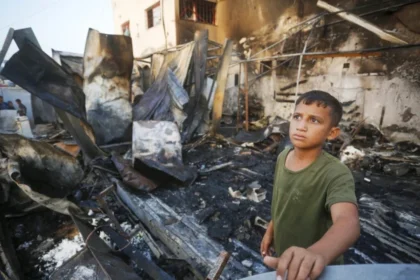In recent weeks, Pakistan has intensified its counter-terrorism operations as security forces respond to a series of alarming incidents that have raised concerns about the resurgence of militant activities across the country. This renewed focus on security comes amid growing fears of terrorist networks operating in various regions, necessitating a coordinated and robust response from both military and law enforcement agencies.
The military operation in the Charbagh area of Swat on October 4 was a significant milestone in these efforts. According to the Inter-Services Public Relations (ISPR), two terrorists were killed and one was apprehended during this operation, which was based on actionable intelligence regarding the presence of terrorists in the area. This operation not only highlights the military’s commitment to combating terrorism but also serves as a reminder of the persistent threats that linger in various regions of Pakistan.
Among the deceased terrorists was Attaullah, alias Mehran, a notorious figure linked to several high-profile attacks. Attaullah was particularly notorious for his involvement in a landmine attack that targeted a convoy of foreigners on September 22, a violent act that underscored the critical need for enhanced security measures. His death marks a significant blow to terrorist networks in the region, but it also raises questions about the potential for retaliation or the emergence of new threats in the aftermath of such operations.
During the clash, an exchange of gunfire resulted in the deaths of both terrorists, while an additional individual was apprehended, wounded but alive. This outcome highlights the risks involved in such operations, where security forces must balance the immediate need for action with the broader goal of minimizing casualties and capturing individuals for intelligence gathering.
Following the operation, security forces intensified their search efforts in Swat to locate any remaining terrorists, demonstrating a proactive approach to addressing potential threats. This commitment to vigilance reflects an understanding of the complexities involved in counter-terrorism, where the remnants of terrorist groups can still pose significant risks even after targeted operations.
While military operations play a vital role in combatting terrorism, they are often complemented by law enforcement efforts at the provincial level. In Punjab, the Counter-Terrorism Department (CTD) has launched a series of intelligence-based operations across multiple cities, resulting in the arrest of 18 suspected terrorists. These operations took place in urban centers such as Lahore, Khushab, Gujranwala, Pakpattan, Bahawalnagar, Rawalpindi, Faisalabad, Sheikhupura, Mandi Bahauddin, and Mianwali.
The CTD’s actions are indicative of a comprehensive strategy aimed at dismantling terrorist networks before they can execute attacks. The apprehended individuals included three terrorists arrested in Lahore, Faisalabad, and Rawalpindi, where law enforcement officials recovered various weapons, ammunition, and banned literature. The materials seized during these operations highlight the serious nature of the threats posed by these individuals, including their intentions to spread fear among the public through potential attacks.
Officials noted that the captured terrorists possessed maps and documents indicating planned attacks on public places. This revelation raises concerns about the broader implications of terrorism in Pakistan, where even a single individual can significantly impact public safety. The proactive measures taken by the CTD and other law enforcement agencies demonstrate a recognition of the need for immediate action to disrupt potential attacks and maintain peace in society.
The recent surge in counter-terrorism operations is also a response to the changing dynamics of the security landscape in Pakistan. The resurgence of militant groups and an increase in violent incidents have prompted security agencies to recalibrate their strategies and enhance their preparedness. In light of this evolving threat, the government has emphasized the importance of integrating military operations with community engagement and socio-economic development.
Prime Minister Shehbaz Sharif has articulated a vision for a multifaceted approach to counter-terrorism that encompasses not only military action but also initiatives aimed at addressing the underlying causes of extremism. This holistic strategy recognizes that effective counter-terrorism requires a nuanced understanding of the socio-economic conditions that may foster radicalization.
Efforts to engage local communities have become increasingly important in the fight against terrorism. Public awareness campaigns aim to educate citizens about the signs of extremism and encourage them to report suspicious activities to law enforcement. This collaborative approach seeks to create a sense of shared responsibility among community members, emphasizing that everyone has a role to play in ensuring public safety.
The role of education in countering extremism cannot be overstated. By promoting educational initiatives that focus on tolerance, inclusivity, and critical thinking, the government aims to cultivate a generation that is less susceptible to extremist ideologies. Schools and educational institutions can serve as platforms for fostering dialogue and understanding, ultimately contributing to a more peaceful society.
Moreover, addressing economic grievances is essential in the fight against terrorism. Many individuals who join extremist groups often do so out of desperation or lack of opportunity. By investing in socio-economic development programs, the government can help alleviate poverty and create pathways for youth to engage in constructive activities rather than resorting to violence.
In addition to domestic efforts, Pakistan has recognized the significance of international cooperation in counter-terrorism. The country has engaged with global partners to enhance intelligence sharing and best practices in combating terrorism. This collaboration is crucial in a world where terrorist networks often operate transnationally, necessitating a coordinated response to effectively address these threats.
The evolving nature of terrorism poses challenges not only to Pakistan but also to the international community. The emergence of new extremist groups and the use of advanced technology by terrorists have transformed the landscape of modern conflict. As a result, security forces must remain agile and adaptive in their strategies, continually assessing risks and implementing measures to counter potential threats.
While recent military operations and arrests signal a firm stance against terrorism, they also highlight the complexity of the problem. The fight against extremism requires sustained efforts, and the potential for backlash or retaliation from terrorist groups remains a concern. As security forces engage in operations to dismantle networks, there is always the risk of new threats emerging in response.
The psychological impact of terrorism on society also warrants attention. Fear and anxiety can take root in communities affected by violence, leading to a cycle of distrust and division. Efforts to promote social cohesion and resilience among citizens are vital in overcoming the trauma associated with terrorism. Community-led initiatives that foster dialogue and understanding can help bridge divides and strengthen the fabric of society.
The commitment to counter-terrorism efforts in Pakistan is not solely about military action; it is a comprehensive approach that encompasses legal reforms, community engagement, and international collaboration. The government’s legislative agenda aims to strengthen laws related to terrorism, ensuring that individuals involved in extremist activities face severe consequences. By establishing a clear legal framework, authorities can deter potential recruits and reinforce the message that terrorism will not be tolerated.
Furthermore, the role of technology in counter-terrorism cannot be overlooked. Security agencies are increasingly leveraging technology for surveillance, intelligence gathering, and data analysis. The use of advanced technologies can enhance situational awareness and improve response times, ultimately contributing to more effective counter-terrorism operations. However, it is essential to balance these measures with respect for civil liberties and privacy rights, ensuring that counter-terrorism efforts do not infringe upon the rights of law-abiding citizens.
As the Pakistani government continues to navigate the challenges posed by terrorism, it is crucial to maintain public support for counter-terrorism initiatives. Transparency and accountability in operations can foster trust between citizens and security forces, which is vital for the success of these efforts. Regular communication about the objectives and outcomes of operations can help dispel misinformation and promote a sense of shared responsibility.
In summary, Pakistan’s recent surge in counter-terrorism operations reflects a determined effort to combat the persistent threat of terrorism. While military actions have yielded tangible results, the broader context of counter-terrorism necessitates a comprehensive strategy that addresses root causes and engages communities. By fostering collaboration between security forces and citizens, promoting education and socio-economic development, and enhancing international cooperation, Pakistan can work towards a future where peace and security are attainable for all.
The ongoing operations in Swat and Punjab serve as a reminder of the challenges that lie ahead. The fight against terrorism requires vigilance, adaptability, and a commitment to a holistic approach. As security forces continue their efforts, the support of the public and a concerted focus on addressing the underlying issues of extremism will be critical in achieving lasting peace and stability.
#Pakistan #CounterTerrorism #Swat #Punjab #SecurityOperations #ISPR #Terrorism #NationalSecurity #CommunityEngagement #GlobalCooperation







